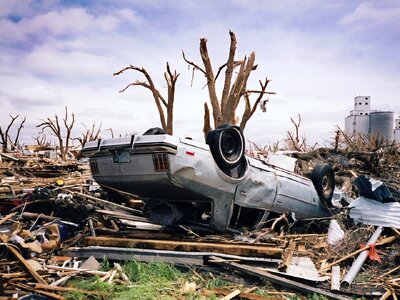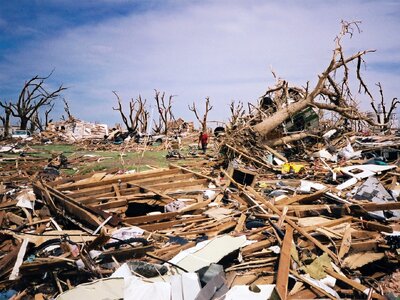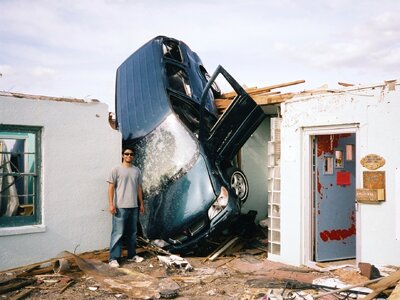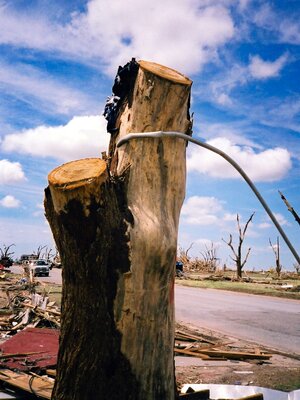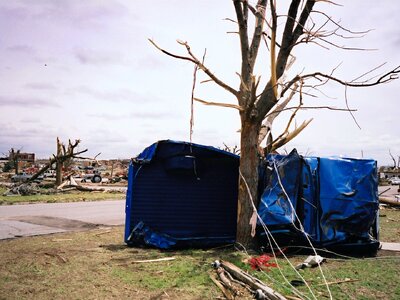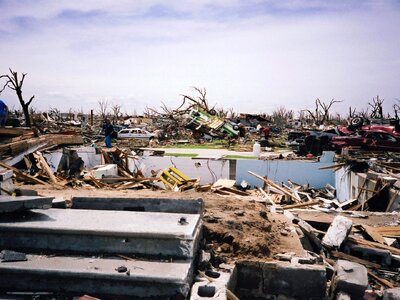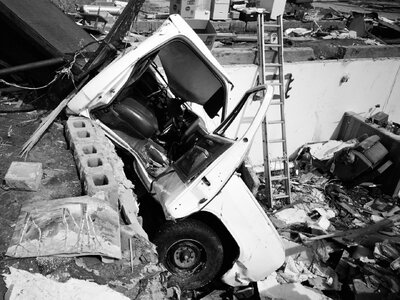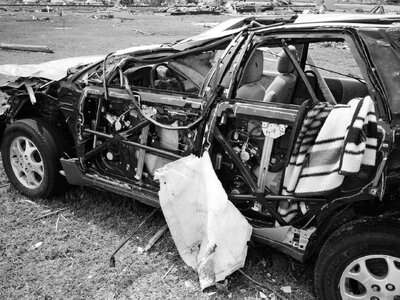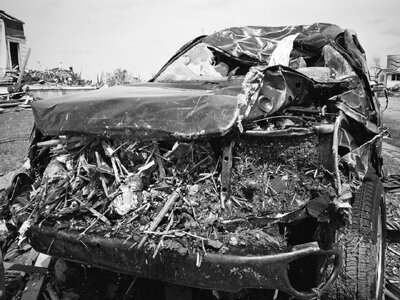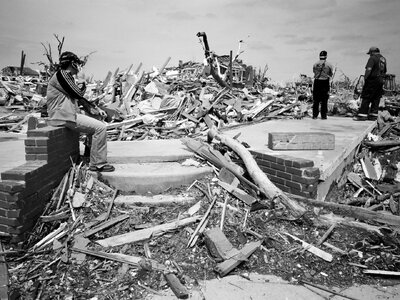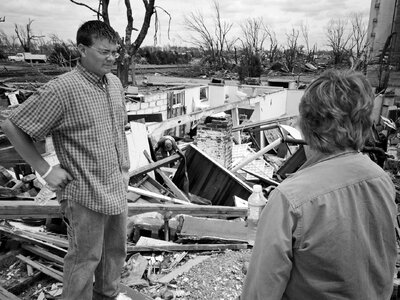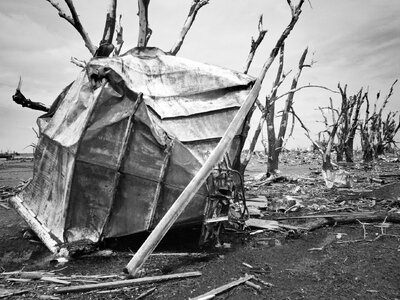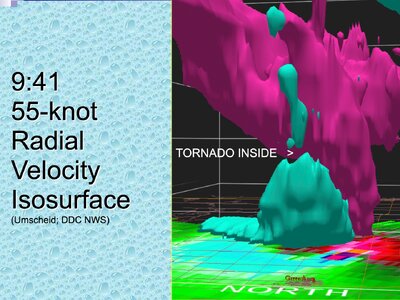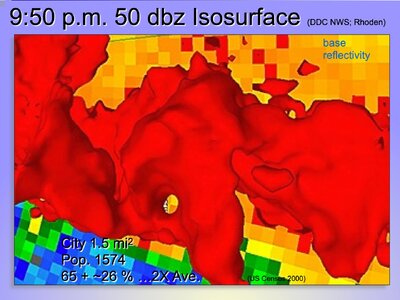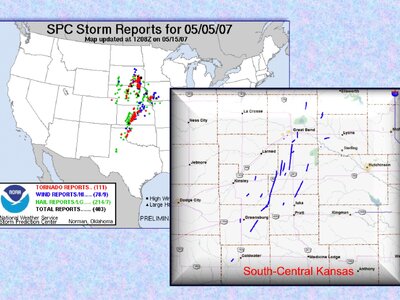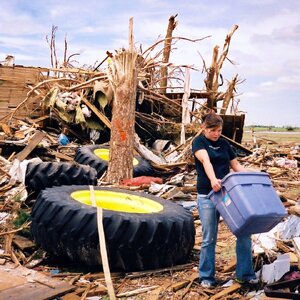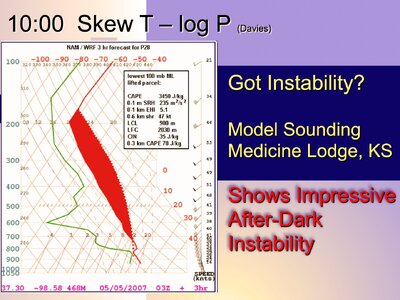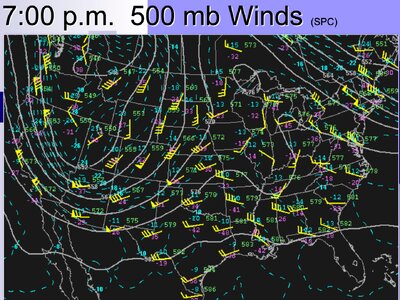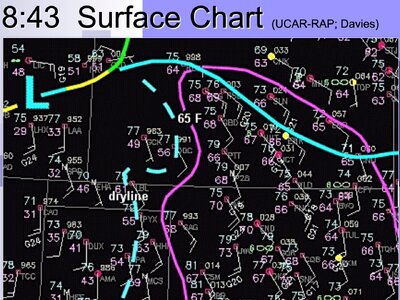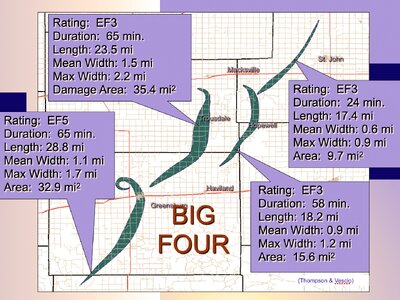Darren Addy
EF5
Randy,
I'd like to echo Bob and thank you for your first person account, and also for your selfless service to the people of Greenburg that terrible night. I'm glad that the number of fatalities, though significant, was only a small fraction of your initial estimate.
This is probably not the forum for it, but since you brought it up, I'd like to address the issue of photojournalism and ethics in this matter. While stormchasers are not, for the most part, professional photojournalists - when there are no "proper" photojournalists present, anyone who gets the photo or video (particularly in a remote location) can be, in effect, pressed into such service. "Pictures" are what often move people to action and/or to care about a specific issue (in this case, for example, one might be making a case for proper funding for the NWS and the warning service they provide, for local EMTs and Fire Departments, etc.).
One famous example, discussed in photojournalism ethics classes is this one: http://rarehistoricalphotos.com/mother-daughter-falling-fire-escape-1975/ . You may note to what that shocking "picture" (and the news coverage that it drew public attention to) eventually led:
I can certainly understand how one might be irked to see someone with a camera while they were struggling to carry out search & rescue procedures, particularly when they needed more help. But, IMHO, we should be careful not to condemn an entire field, or encourage scorn to be thrown at people who happen to be documenting evidence in the aftermath of a disaster.
I'd like to echo Bob and thank you for your first person account, and also for your selfless service to the people of Greenburg that terrible night. I'm glad that the number of fatalities, though significant, was only a small fraction of your initial estimate.
This is probably not the forum for it, but since you brought it up, I'd like to address the issue of photojournalism and ethics in this matter. While stormchasers are not, for the most part, professional photojournalists - when there are no "proper" photojournalists present, anyone who gets the photo or video (particularly in a remote location) can be, in effect, pressed into such service. "Pictures" are what often move people to action and/or to care about a specific issue (in this case, for example, one might be making a case for proper funding for the NWS and the warning service they provide, for local EMTs and Fire Departments, etc.).
One famous example, discussed in photojournalism ethics classes is this one: http://rarehistoricalphotos.com/mother-daughter-falling-fire-escape-1975/ . You may note to what that shocking "picture" (and the news coverage that it drew public attention to) eventually led:
"The picture also prompted officials in Boston to rewrite its laws regarding fire escape safety. Fire safety groups around the country used the photo to promote similar efforts in other cities."
Another article examines this issue: Are photojournalists obligated to help in rescues?
Photojournalism also provides something that society needs, it just isn't always as universally recognized. That being said, there isn't any reason that a person might not be able to do both, if circumstances allow (document AND assist rescuers). Also not to be ignored is that photojournalists can also suffer from PTSD after an incident.I can certainly understand how one might be irked to see someone with a camera while they were struggling to carry out search & rescue procedures, particularly when they needed more help. But, IMHO, we should be careful not to condemn an entire field, or encourage scorn to be thrown at people who happen to be documenting evidence in the aftermath of a disaster.

